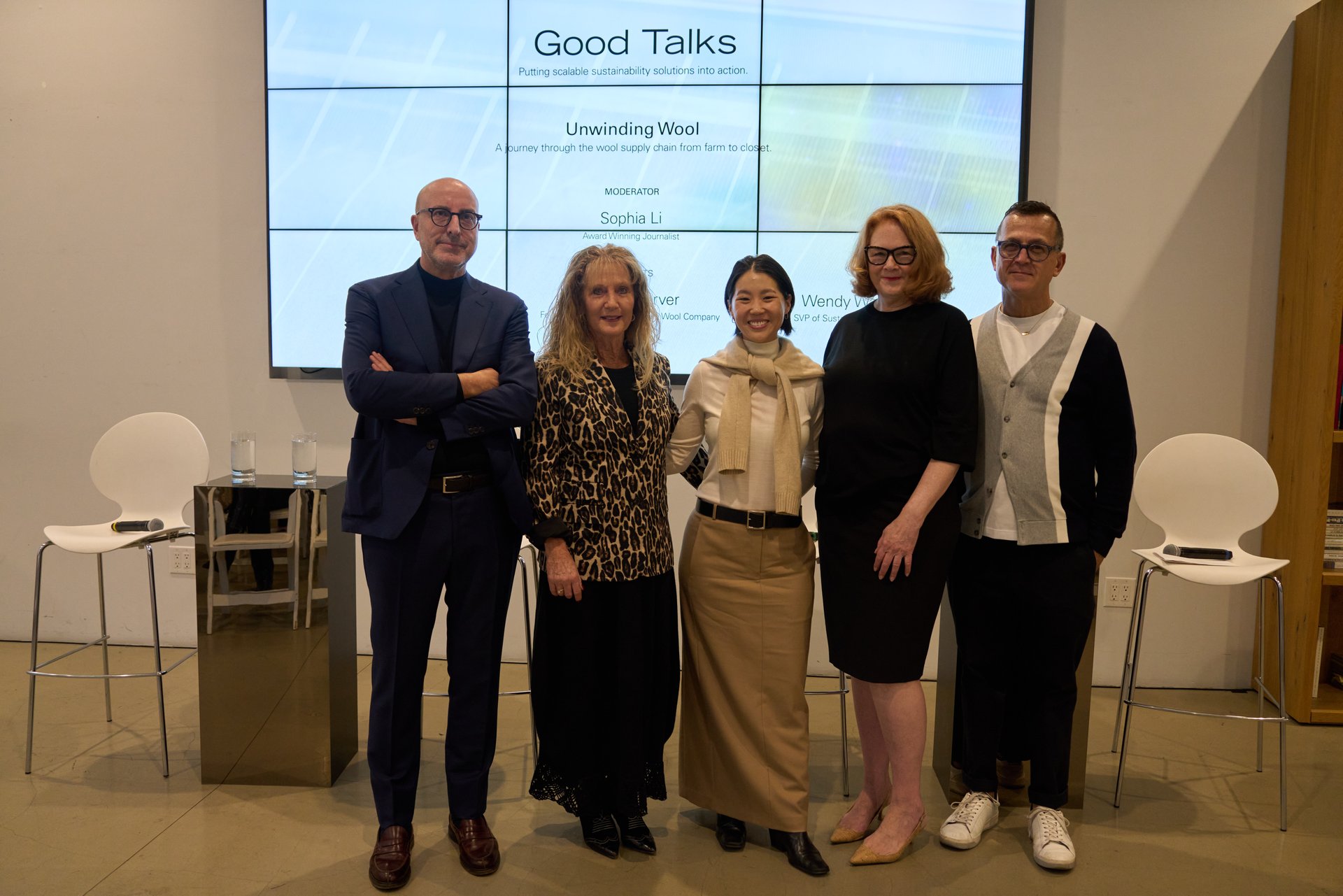Good Talks: The Future is Flax
April 16, 2024
Aldo Aurojo
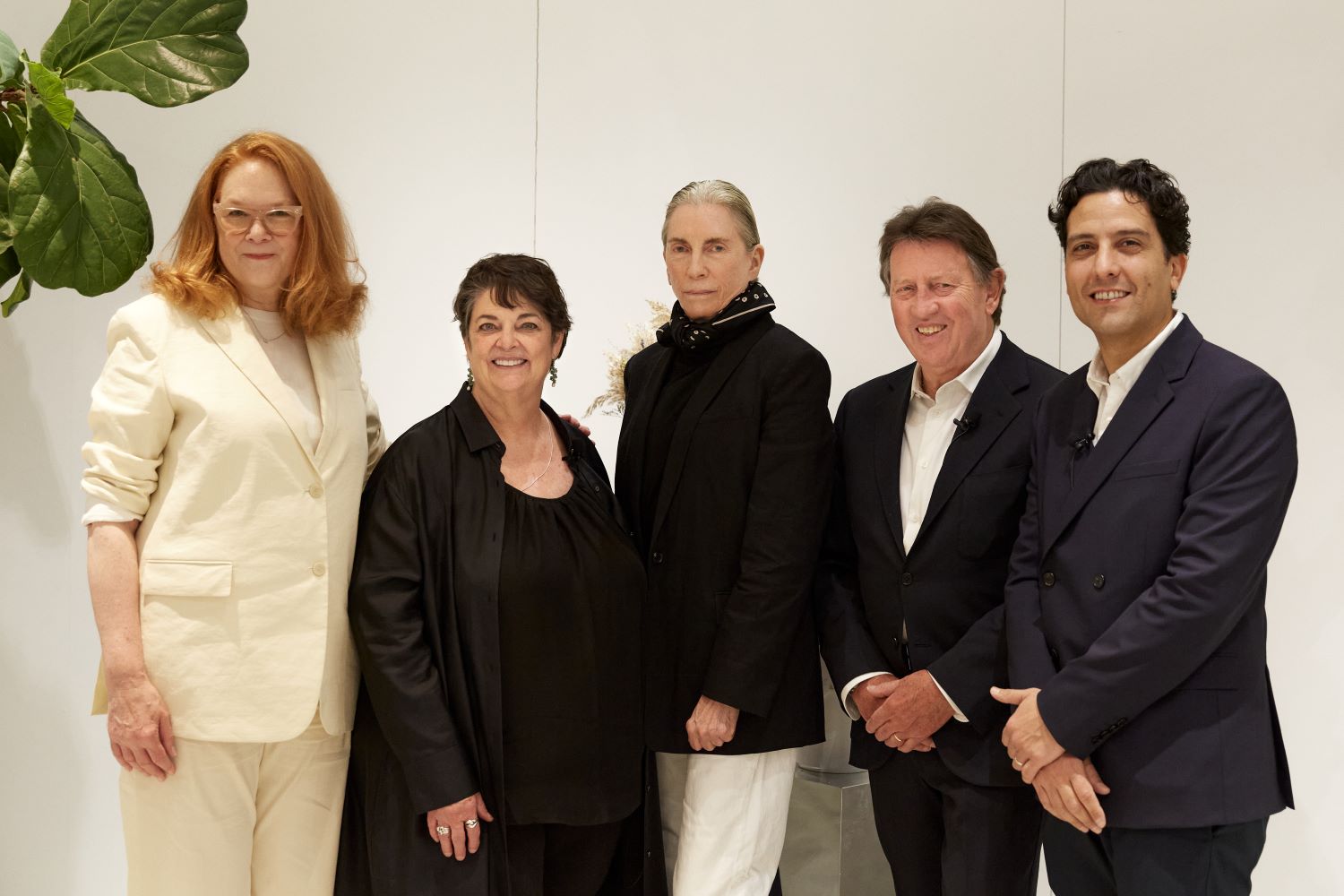


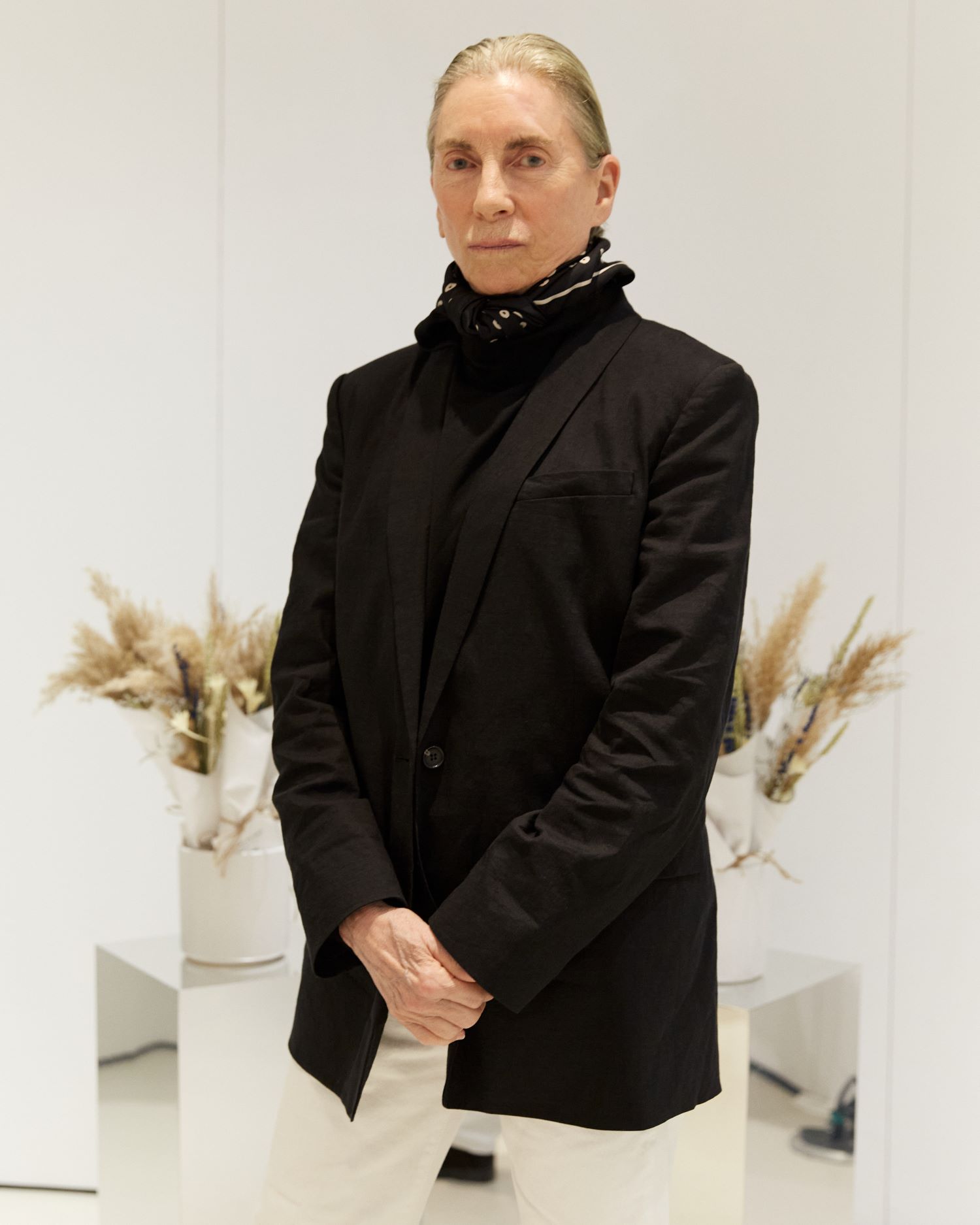
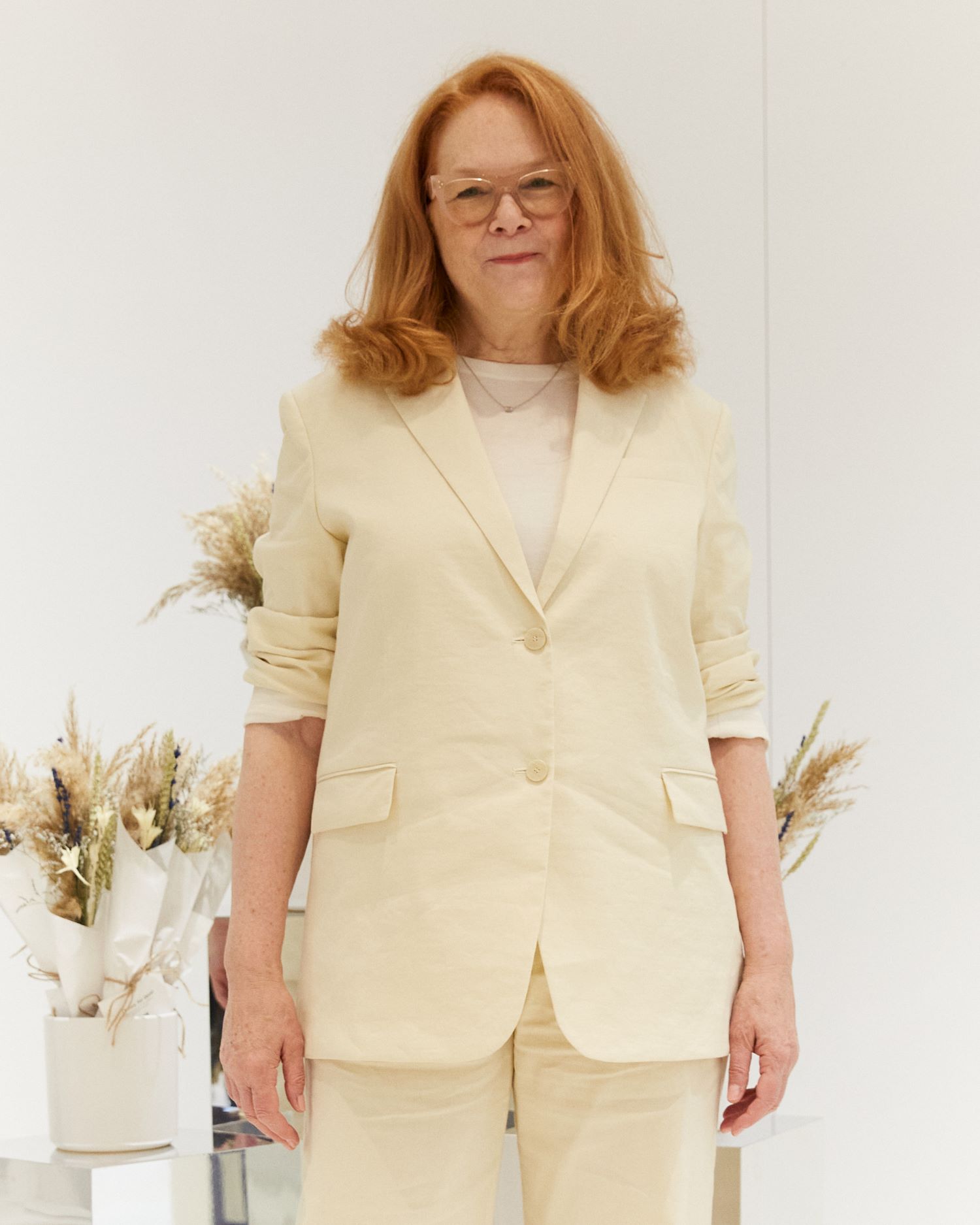
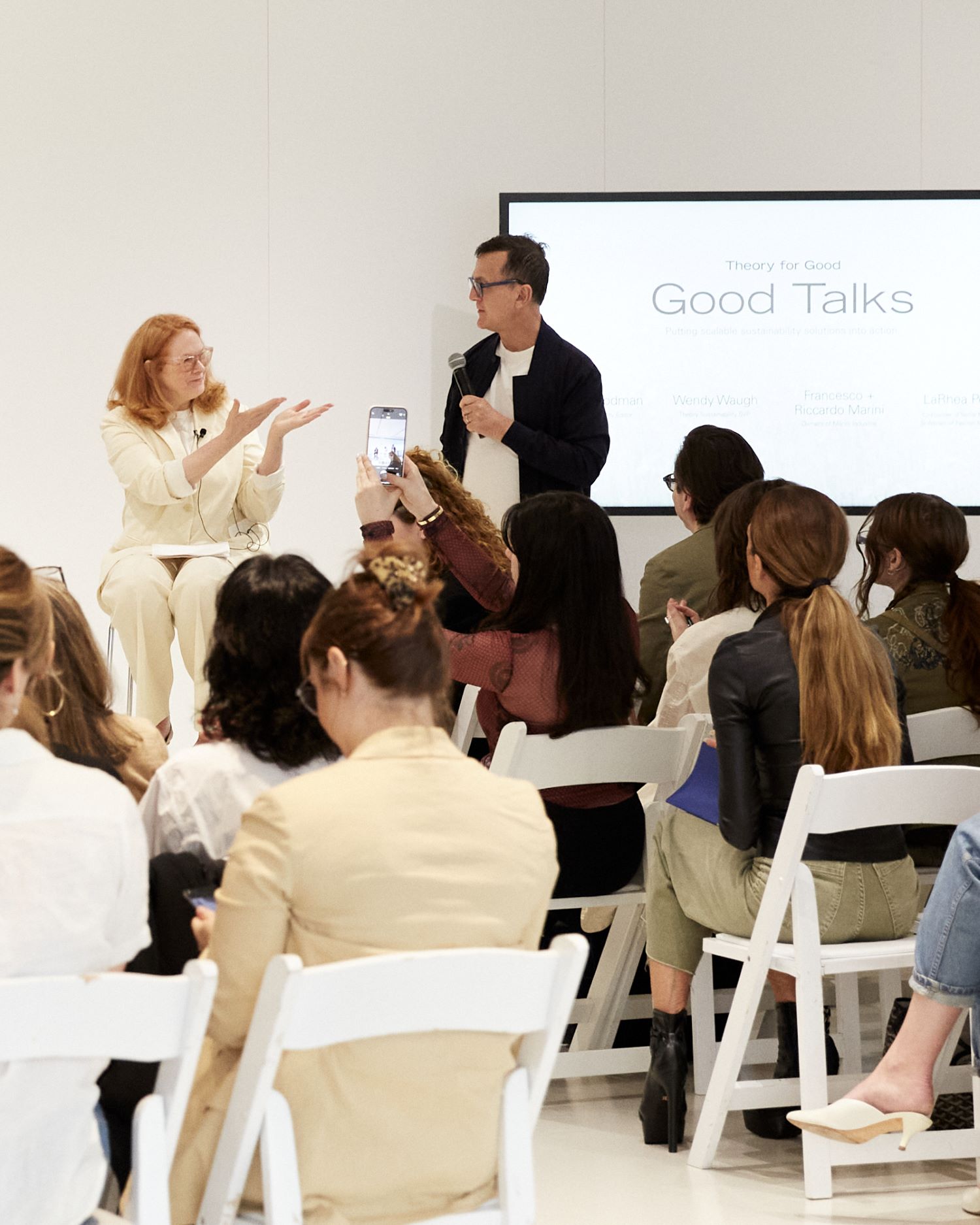
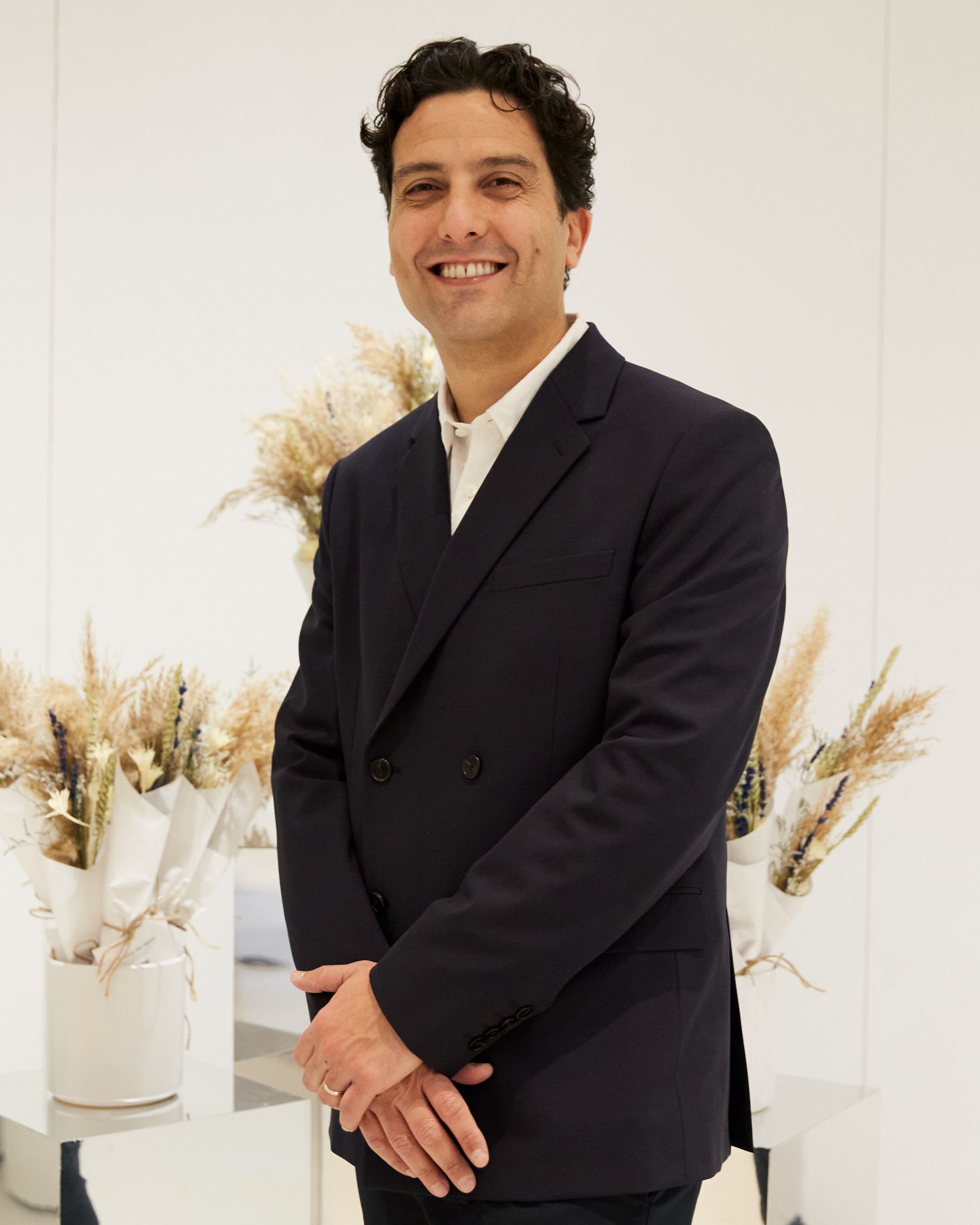
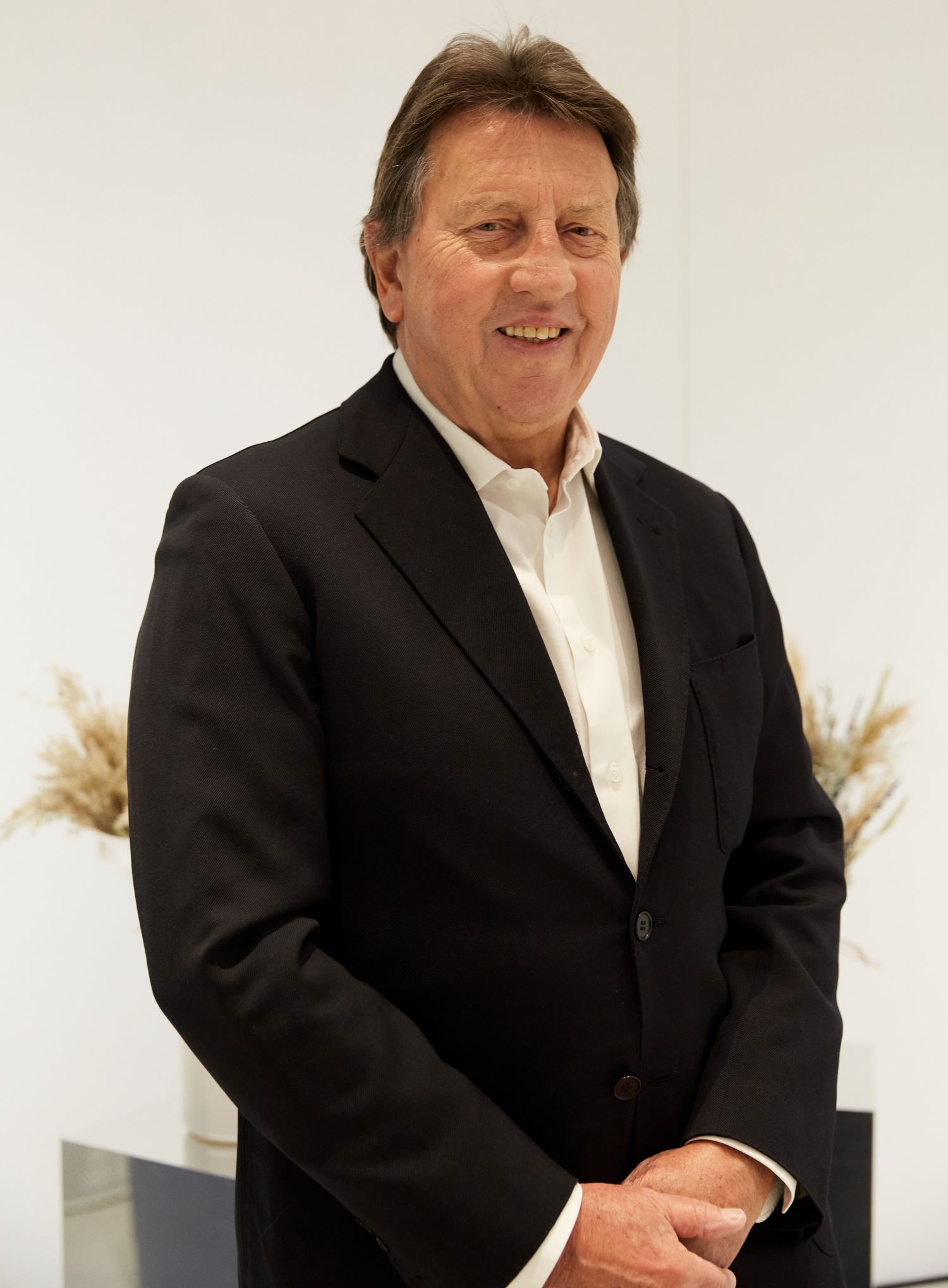
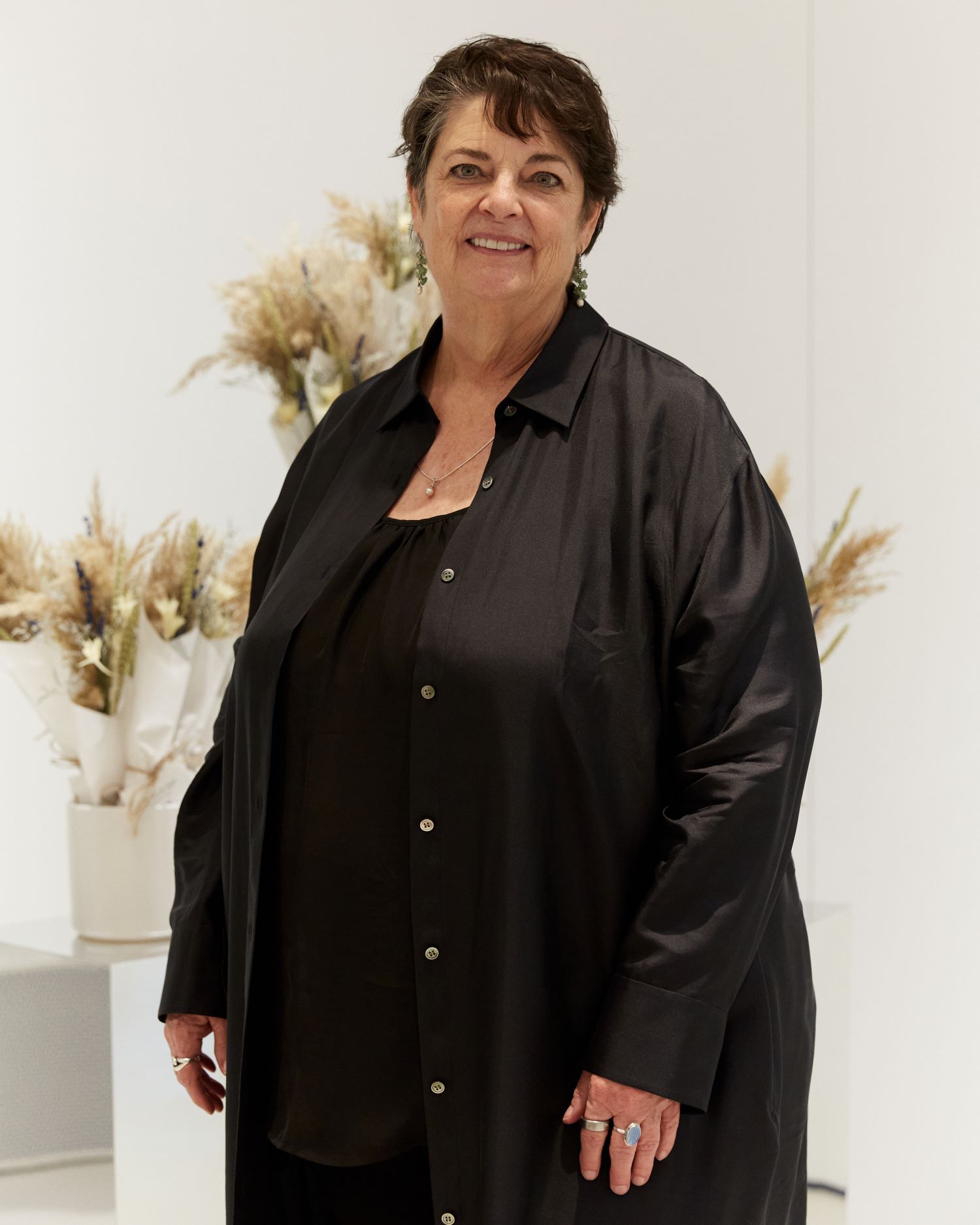
Wendy Waugh, Tonne Goodman, LaRhea Pepper, Francesco and Riccardo Marini
Moderator Tonne Goodman, Sustainability Editor at Vogue
Wendy Waugh, Theory’s SVP of Sustainability
Francesco Marini, owner of Marini and Cecconi linen mill
Riccardo Marini, owner of Marini and Cecconi linen mill
LaRhea Pepper, founder of Textile Exchange
On Tuesday morning, dozens of changemakers looking to shepherd positive impact in our industry gathered at the Theory showroom in the Meatpacking District for Good Talks, the first Theory and CFDA sustainability-focused conversation series, in partnership with the United Nations and Lifestyle Network.
This inaugural, symposium, titled The Future is Flax: Zero-Waste Innovations at the Forefront of Flax Farming, brought together a group of experts, including Wendy Waugh, Theory’s SVP of Sustainability; LaRhea Pepper, founder of Textile Exchange; Francesco and Riccardo Marini, owner of Marini and Cecconi linen mill; and moderator Tonne Goodman, Sustainability Editor at Vogue.
“Being Earth Month, we are so committed at the CFDA and are excited that this is the first of many conversations we have planned with Theory,” said CFDA CEO Steven Kolb. “This is the space and opportunity for dialogue.”
The discussion was a testament to what we can achieve when we come together under a single purpose—fostering transparent, inclusive, and transformative engagement of key stakeholders to drive urgent action for sustainability.
This initiative is part of Theory for Good, Theory’s commitment to sustainable solutions for products, community advancement, and reducing fashion’s impact on the planet. The Good Talks series will continue throughout 2024 in partnership with the CFDA and the UN with the aim to amplify and advance conversations and solutions around sustainability in the fashion industry.
Here, some highlights:
Tonne Goodman: LaRhea, why did you start the Textile Exchange 21 years ago?
LaRhea Pepper: The Textile Exchange was started by farming organically and working with my neighbors. That was before farmers started talking to brands and brands started talking to farmers. It’s important to note that together we make a business. It takes a connected collective strategy to implement a force for change. By the time we got to 2002, we had 50 brands and retailers as members. It was the first organization of its kind that brought the full supply chain together—from farmers, suppliers, seed growers to dye houses, and knitting, spinning, and weaving to identify those barriers to growth.
The fibers we wear can be the tool to drive change. There were real issues we faced like land-based fires and animal welfares. How do you start using those fibers—from how it’s grown to how it’s dyed to how people are treated—to drive change? It’s not just about where it came from. The fibers you love—the ones you play and sleep in impacts people’s lives, whether you realize it or not. You wear your values; it’s not just about doing good things. It’s about feeling and spreading the joy that your decision and choices are positively impacting people’s lives.
T.G.: Not only are you wearing your values, but you’re also announcing your values. Whatever you put on in the morning is a declaration of who you are. You can vote for what you want to put on and display that value. It all comes back to the earth.
Wendy Waugh: One thing I learned is how important it is to give back to the source, which is the farm. What farmers do is to make sure the land is healthy. I never thought about this when I started. Now, not only do I think about it, but I am also passionate about the fact that we need to know who the mills are, who are the spinners and farmers. The more people I meet, the more they want their story told. I’ve had farmers tell me: please share my story, because I want them to know how smart we are and how scientific this process truly is.
T.G.: Linen has special attributes in terms of sustainability. Why is it so special?
Francesco Marini: Linen is a love story. Linen is something that has a life. When you wash a garment and you put it on again, it changes a little bit because it grew with you. It’s unique compared to other fibers. The fiber from the plant has other life and uses that minimize waste. After being used, we ca reuse the seeds and flowers and the rest of the plant because we can compost it to give it another life. The fiber does not need any water to be engaged with—the weather does its job and is enough. Everything about it is natural.
T.G.: Stretch has been added to your linen. How did that come about?
Riccardo Marini: This business has been going on for centuries in our city and surrounding places where we live. The wool business did not cover the 12 months of the year. It’s very up and down unstable business. So, we said we must try to find something that together with the wool could give us the possibility to cover the dead months. Cotton was an easy route, but I thought about linen because when you wear it you feel it. It goes together with warmness or coldness. So, I asked, why don’t we transfer the same performance as skiwear into our daily wear? We started to develop something with countless tries. When we started linen with stretch, it was a huge step ahead. Performance had been added to the fabric. With the comfort of the product, the customers follow, and there’s nothing more we can ask for.
T.G.: One of the most things the apparel industry is accused of is waste. Tell me about how you see that stretch from the farm to farmers to what
L.P.: When we think about natural fibers, we are talking about plant based. Someone is growing that. They’re waiting for the spring rains after planting. There’s a circle of life, and as a farmer, you are a steward of that life. At the farm level, it truly is about supporting life—generating biodiversity, better habitats for animals, promoting life and supporting it. We just so happen to be growing a cotton or flax plant, but it’s actually about the whole harmony.
Farmers farm because they have a passion for land and have that stewardship mindset. Facing the market makes it difficult, does that really support life on the farm? The biggest challenge as an industry we must break away from is from a price paradigm to a value paradigm. Every preferred fiber out there will cost more. The cheap ones have created problems: poverty and pollution. It’s an opportunity to have a different business model so farmers can plant those better crops than the cheaper chemicals.
It really is about supporting life—life on the farms, our planet, our water. As a farmer, I’m putting my heart and soul into this. It’s a way of life. So many of our farmers have been taught to farm with chemically intensive solutions, so there is an education needed for farmers too.
T.G.: How do you connect with the supply chain and produce clothes that you have to sell?
W.W.: It’s so important for brands to understand who really is in the supply chain and to ask questions. I’ve learned over the years that I thought I knew a lot of things. I find that the more I ask questions, the more I develop stronger relationships and the more we learn about farmers, spinners, and mills. Then we can make decision on how we want to proceed from a value and cost-driven perspective.
The Marinis are good examples of this. Most natural fibers you’ll buy from an auction, but the Marinis have been able to work with us [Theory] the past year and help us give back to our farmers in Normandy—because of the relationship and the questions. It’s all of us together. It’s people. The decision of what we are buying is real because we are impacting real people.
TG: The earth is forgiving. If we listen to it, it will speak to us. What do we need to do as an industry today to impact change?
L.P.: So much of it has to do with our mindset. If you haven’t already made that shift, it’s what we need to do as global citizens. Everything you touch and wear comes from somewhere. The food we eat, the clothes we wear, the makeup we put on. It’s all land based. Have that mindset shift today so you are making choices that are supporting life.
Previous
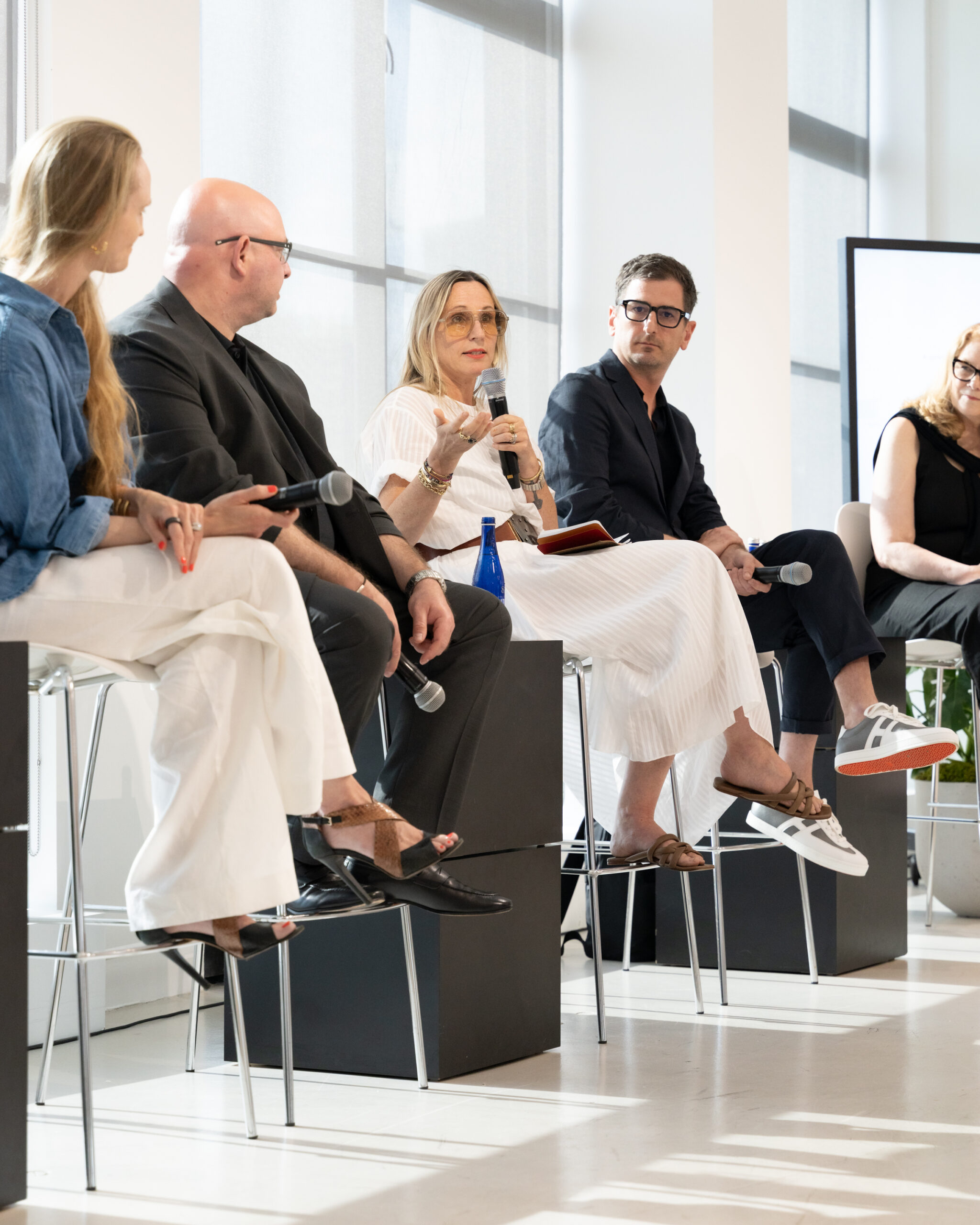
Good Talks: Sustainability in Sync
